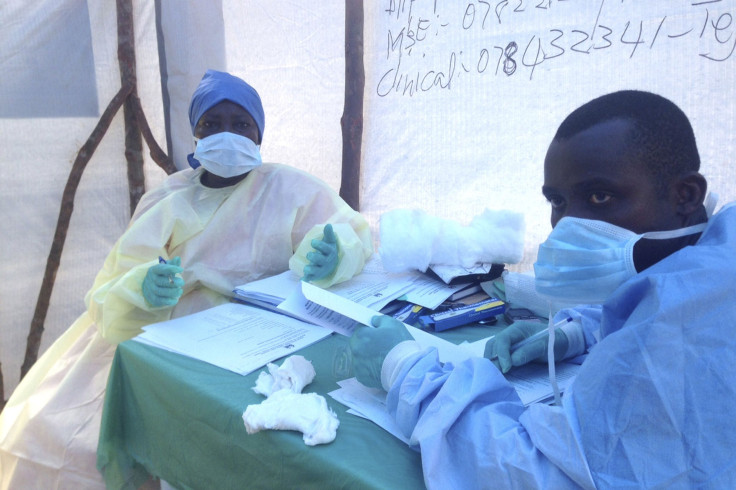As Ebola Virus Rampages In West Africa, Health Care Workers Continue To Face Hostility

In the midst of the largest outbreak of Ebola virus disease ever recorded, the World Health Organization (WHO) continues to monitor progress of the virus throughout Guinea, Liberia, and Sierra Leone, countries where the disease has never before been seen. The first Ebola virus outbreak occurred during February in Guinea and then spread to its neighboring countries, with the current number of confirmed, probable, and suspected cases of Ebola in the three countries reaching 888, including 539 deaths, according to the WHO. Previous Ebola outbreaks transpired in remote villages in Central and West Africa, near tropical rainforests, far from the current scene.
"It's very difficult for us to get into communities where there is hostility to outsiders," WHO spokesman Dan Epstein said in a press briefing covered by Reuters. "We still face rumors, and suspicion and hostility." Through the use of performance and songs, activists are attempting to spread health awareness among villages in the countryside where literacy is low, the Associated Press reported. Formerly known as Ebola hemorrhagic fever, the disease has no cure and no vaccine. It is a severe, often fatal illness transmitted to people from wild animals, including fruit bats, and spreading through human-to-human contact.
This current strain of Ebola is a new virus, researchers say, and did not spread to the West African nations from the previous outbreaks in Uganda and Congo. Scientists believe this new strain is linked to bats, specifically villagers consuming those that carry the virus. Villagers have been warned not to eat fruit that may have been half-eaten by bats. Still, health care workers believe the majority of patients who have fallen ill are family members of victims and health workers who have come into direct contact. In Liberia, the fatality rate is currently 69.1 percent, according to Mr. Tolbert Nyenswah, assistant minister for Preventive Services at the Ministry of Health and Social Welfare.
"We are seeing a lot of mistrust, intimidation and hostility from part of the population," Marc Poncin, emergency coordinator for medical charity Medecins Sans Frontieres in Guinea, told Reuters. Health authorities report terrified villagers are hiding relatives with the disease, too afraid to bring patients to a clinic, or improperly touching the body during funeral rites after a patient dies. Proper quarantine has been difficult, with villages in some cases barring health care workers. Because early identification of Ebola virus in patients is difficult as initial symptoms may be non-specific, villagers have in some cases mistaken the disease for malaria and then blamed health workers when the disease made a turn for the worst and victims began to bleed from the ears and nose.
“We continue to receive both material and logistical supports and experts from our international partners, including WHO, USAID, the Centers for Disease Control and Prevention, MSF Samaritan Purse,” Nyenswah told reporters at a press briefing reported by Front Page Africa. “Yesterday, we received eight experts that arrived in Liberia to support our own local expert to fight the disease.” Ebola first appeared in 1976 in two simultaneous outbreaks occurring in Eastern Africa near the Ebola River in Democratic Republic of Congo and in Sudan.



























